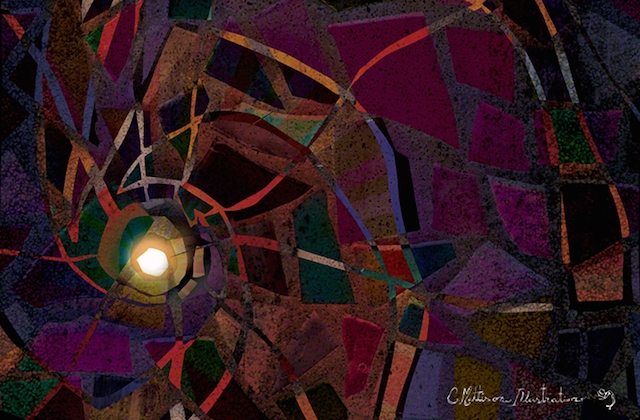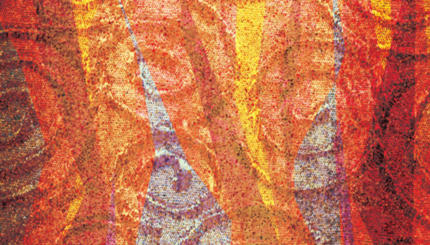Commentary on Parashat Terumah, Exodus 25:1-27:19; Numbers 28:9-15; Exodus 30:11-16
A dear friend recently got a letter that is rearranging her life.
Her childhood was difficult — screaming fights, police intervention when her father got violent, constant fear. Her body and soul were scarred by her father, and then one day she came home from middle school and her father was gone, never to be heard from again.
Her life unfolded, and as an adult she found an equilibrium she never had as a child. Now in her 40s, she’s found work that nourishes her, a partner to whom she is dedicated and children whom she adores.
Then she received a letter from her father, seeking forgiveness, seeking atonement, seeking connection.
With your help, My Jewish Learning can provide endless opportunities for learning, connection and discovery.
Should she respond? Connect? Forgive?
Forgiveness is dangerous business. To forgive someone who wronged us, particularly someone who wronged us seriously and deeply, is to forgo justice or vengeance. The bonds we forge in opposition to enemies connect generations who never met and connect our current selves to our former selves; to forgive is to risk betraying our notions of family, honor and pride, risk betraying the cult of the dead, and the dire and absolute expression of respect it demands. (See Michael Ignatieff, The Warrior’s Honor.)
But to forgive is also to step out of the narratives that define us and begin to define our own narrative.
In his book The Dignity of Difference, Jonathan Sacks, the former chief rabbi of Great Britain, calls forgiveness “the most compelling testimony to human freedom. It is the action that is not the reaction. It is the refusal to be defined by circumstance.”
To forgive is to hold onto the future more tightly than the past, but the past — even the painful past — is often worth holding onto.
How do we know when to hold onto the past, and when to reach for the future?
In Parshat Terumah, there are details upon details for the design of the Tabernacle the ancient Israelites used in the desert, and tucked in the blueprints is the instruction that upon the ark into which the Tablets of the Covenant are to be placed, there will be two mythical beings, very different from each other (R. Bachya to Ex 25:18; Yoma 54a), standing face to face (Exodus 25:17-22). These beings had once been agents of Divine Fury, righteously indignant at Adam and Eve, refusing them entry to the Garden of Eden after the exile. (Genesis 3:24)
Now, though, they define the space where the Divine Presence will reside on earth — between these creatures who stand, with their arms extended, looking each other in the face.
In fact, this is the whole project of the ancient tabernacle, to allow the Divine Presence to dwell among us, in the space between us when we meet face to face.
So what does this mean for my friend who received the letter? In a very real sense, she can’t forgive. It’s not the adult woman who was wronged, but the child who grew up without a father. There is nothing she can do now that will give her the loving, safe childhood she wanted.
But what will best serve her future?
She, like all who have been wronged, has every right to deny all forgiveness. It is the absolute prerogative of the wronged to forgive as they see fit, for to forgive is to risk breaking ties with the past, with people long dead, with our former selves. But the Rambam (also known as Maimonides) teaches that after a victim rebuffs three entreaties for forgiveness, the formerly innocent victim commits a sin of his or her own. The refusal to grant forgiveness carries with it an anger that can blind a person to the holiness of the world.
There is holiness to be found, for sure, in the connection between people who love each other. But is there holiness to be found between people who do not love each other or even hate each other?
When the mythical beasts guarded Eden, they wielded fiery swords of justice. They maintained borders and demanded justice from those who defiled the Garden of Eden. They did their jobs, but they did not make space for holiness. It wasn’t until they stood face to face, surrendering to each other with no weapons in their hands, that they made space for the Divine Presence to dwell between them.
ark
Pronounced: ark, Origin: English, the place in the synagogue where the Torah scrolls are stored, also known as the aron kodesh, or holy cabinet.



